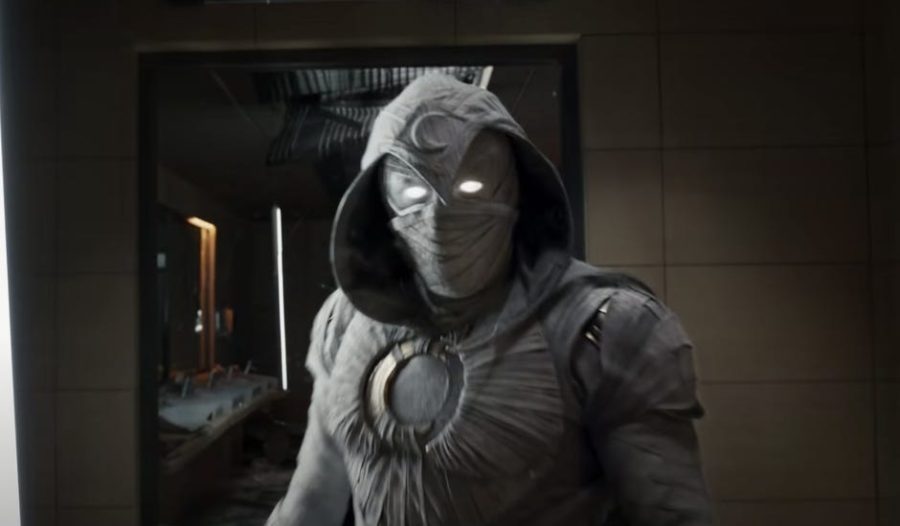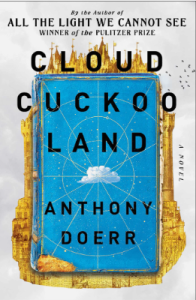The Premiere of Marvel’s ‘Moon Knight’ Does Not Live Up to Expectations
Disney
Marvel’s newest limited series “Moon Knight” premiered on March 30th. The first episode introduces Steven Grant, played by Oscar Isaac, and begins to portray the Egyptian influence of the Moon God Khonsu.
April 12, 2022
This column was written by Alex Gribb and will be an ongoing story about Marvel’s Moon Knight series.
Yesterday, I had six hours of sleep with zero cups of coffee, and I honestly had no emotional capacity left. Safe to say, the last thing I wanted to do was watch “Moon Knight,” but I did. I wish I hadn’t.
“Moon Knight” is marvel’s newest limited series with six episodes, premiering every week on Wednesday. This show follows Steven Grant, a museum worker who is waiting for his chance to finally become a tour guide, with his excessive knowledge of ancient Egypt being a byproduct of his DID, or as it is disguised, his sleep disorder. Grant often “switches” personalities during the night, and on this particular night, Grant travels to a small Germantown and is chased by a cult leader.
The long-haired messiah who was chasing him has a tattoo of a judicial pendulum that is capable of moving, and when he places his cane in between the hands of someone, it determines if their soul is at peace, and worthy of life, which he removes from an elderly woman. After Grant wakes up and goes to work, the same man appears but leaves him unharmed. The day comes to an end, and Grant is chased by some kind of ancient Egyptian animal, and kills it, after choosing to switch personalities to Marc Spector, the man who is Moon Knight.
To put this review into context, I wrote four summary paragraphs about this episode, but then deleted them after realizing how confusing they were.
My biggest issue with this series overall is the portrayal of Dissociative Identity Disorder DID. In the Comic edition, Steven Grant is an alter of Marc Spector, the “core” personality. Saying Marvel media is surreal is obvious, but the exaggerations are usually about supernatural things, like big green men, two-inch tall women, and someone who can shoot pure energy out of her hands. None of these revolve around real-world traits, because they are meant to be an out-of-reality experience. But in basing a character’s sole powers on a serious disorder, some issues arise.
For example, DID is not a fun superpower that can be controlled, or sampled from. Although certain sensory items can trigger “switches” between personalities, it is rarely intentional. According to the Cleveland Clinic, “The various identities control a person’s behavior at different times. The condition can cause memory loss, delusions, and depression.” To have this illness is permanently life-altering, not an exclusive choice, or simply a reason someone is late for work.
Marvel’s portrayal of the illness is painful at best, but injuring at worst. The misconceptions about DID are numerous, with much of society failing to accept that the disease is real in the first place, and others mocking the illness by faking it. DID is caused by severe trauma done to a person which causes their brain to cope with the trauma by developing a personality to protect the “host” or body. It is not playing dress-up in your mom’s closet.
If someone were to argue that Marvel is attempting to raise awareness with this character, then the franchise is doing a very poor job at it. The inaccuracy being the largest issue, but from any PR standpoint, it is difficult to even find that the television character is diagnosed with DID.
I had to use Wikipedia, then ask my dad who has read most of the comics, and then cross reference it with marvel social media, just to simply find the answer as a consumer.
There were some positives, however.
The use of Egyptian mythology is something that surprised me, as marvel typically uses more European mythologies such as Norse Gods. This addition to the MCU was very appreciated on my part, as it wasn’t something I knew anything about. Greek mythology is so overdone and is a genre every pop culture watcher knows about.
To have a hero who is directly tied to an Egyptian goddess is a breath of fresh air, and for lack of a better term, fun. It was interesting, and in true Marvel fashion, it enticed me to do my own research. But the inaccuracies of the episode were far too much for me to deal with, and angered me to the point where the entire fight sequence was unenjoyable. From the lack of minorities cast in films to the portrayal of women in their movies, it does not surprise me that marvel has made such an insensitive move with the production of this TV show, and it will not surprise me if they do it again.



























![In a recent surge of antisemitism nationally, many have pointed towards social media and pop culture as a source of hate. “Many far-right people have gone on [X] and started just blasting all their beliefs, Sophomore Scott Weiner said.](https://unionstreetjournal.com/wp-content/uploads/2023/10/antisemitism-popculture-2-1200x675.jpg)









